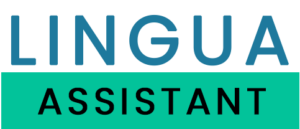Career planning is the process of identifying and setting personal career goals and developing a strategy to achieve them. It is an ongoing process that involves evaluating your skills, interests, and values, as well as researching and exploring different career options.
One of the main benefits of career planning is that it can help you to identify and pursue a career that is a good fit for you. By understanding your strengths and weaknesses, and researching different career options, you can make a more informed decision about which career path to pursue.
One of the main scopes of career planning is identifying your strengths and weaknesses. This includes assessing your skills, interests, and values, and understanding how they align with different career options. By understanding your unique abilities, you can make a more informed decision about which career path to pursue.
Another scope of career planning is researching and exploring different career options. This includes gathering information about various industries and job roles, as well as learning about the skills and qualifications required for different careers. It also includes considering factors such as job growth, salary, and work-life balance when evaluating different career options.
Career planning also includes setting and achieving your career goals. This includes identifying short-term and long-term goals, and developing a plan to achieve them. This may include networking, gaining relevant experience, or pursuing additional education or training.
Networking is also a key scope of career planning. Networking can open up new opportunities and provide valuable connections and support as you navigate your career path. It also includes building a professional network and building relationships with industry professionals, mentors, and others who can provide guidance and support.
Another scope of career planning is self-development, which includes developing the skills and qualifications needed to advance in your career. This may include taking on additional responsibilities, learning new skills, or pursuing additional education or training.
In addition, career planning also includes managing your career, which includes managing your professional reputation, staying informed about industry trends, and maintaining your professional network.
In conclusion, career planning is a comprehensive process that encompasses various aspects of personal and professional development. By understanding the different scopes of career planning, you can develop a strategy to achieve your career goals and advance in your career.
However, there are also several challenges that you may face when it comes to career planning. One of the main challenges is identifying your skills and interests. It can be difficult to know what you are truly passionate about and what skills you have to offer. Additionally, there may be a lack of information or resources available to help you research different career options.
Another challenge is the ever-changing job market. With technology and automation changing the way work is done, jobs are becoming scarcer, and some are disappearing altogether. This makes it harder to predict which career paths will be in demand in the future.
In addition, you may face challenges when it comes to achieving your career goals. For example, you may find it difficult to secure a job in your desired field or to advance in your current job.
Despite these challenges, it is still possible to achieve your career goals through careful planning, research, and persistence. You can start by evaluating your skills and interests, researching different career options, and setting realistic goals for yourself. Additionally, you can seek out resources and support from career counselors, mentors, and industry professionals.
Ultimately, career planning is an ongoing process that requires patience, perseverance, and a willingness to adapt to change. With the right approach, you can overcome the challenges and achieve your career goals.

